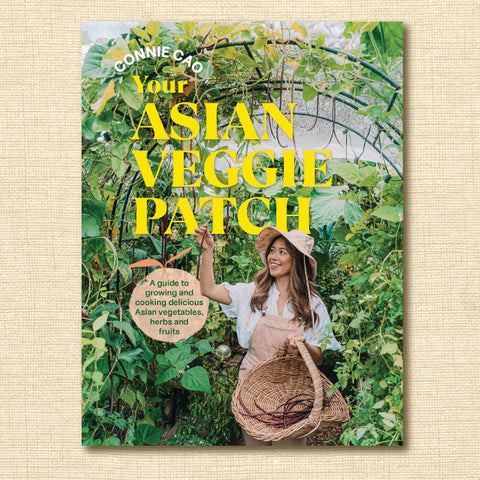Squash (Patty Pan), Yellow (Organically Grown Seeds)
$4.79
This item may be out of season or currently out of stock. Please check back.
Description: Famously easy going, with a creamy texture that is perfect when the patty pans are about 7.5 cm (3") in diameter. Bush-type squash fits easily into smaller gardens. Heirloom.
Pack Size: 25 seeds
Latin Name: Cucurbita pepo
Main Uses: Vegetable
Days to Maturity: 45 - 50 days
Exposure: Full sun
Seed Source: Organically grown
Germination: 5 - 10 days at 21ºC.
Indoors: Summer squash (zucchini) benefit from starting indoors, although this is not required. When starting indoors, sow directly into a minimum 7.5 cm (3") pot and use containers that are biodegradable and can be planted into the soil outdoors. Sow indoors 3 - 4 weeks before the average last frost date but not earlier - squash of all types become unruly and fragile if kept indoors for too long!
We recommend applying a kelp supplement such as Sea Magic starting at time of sowing, then weekly through the growing season. A transplant fertilizer such as Evolve Seedling starter can be alternated with the kelp on a bi-weekly basis once the second set of true leaves have emerged.
Outdoors: Summer squash are warm season plants and seeds will not germinate in cold soil. Direct seed once SOIL has reached 18 - 20ºC (this is one reason why zucchini and other squash tend to thrive as volunteers in compost piles!). On average, summer squash can be direct seeded outdoors the second week of June in southern Manitoba.
Planting depth: 2.25 cm (1")
Spacing: In a 60 cm (24") diameter hill, place 4 - 5 seeds. Cover with soil. Space hills 90 - 120 cm (36 - 48") apart. Thin to the 3 strongest seedlings when first true leaves appear.
Planting Out: Established seedlings can be planted in the garden approximately two weeks after the average last frost date, once soil temperatures have reached 18 - 20ºC.
Growing in Containers: Summer squash require a large amount of space and will only thrive in extra large containers such as half barrels. Ensure containers have drainage holes.
Fertilizing (Containers): Summer squash are heavy feeders and thrive in rich soil. Add 25% quality compost to your potting mix. We recommend Sea Soil. Applying a kelp supplement on a weekly basis will reduce drought stress, and is a good addition to bi-weekly feeding with an organic veggie fertilizer such as Evolve Tomato 3-2-2.
Watering (Containers): Summer squash have a high water content and large leaves, which means they require regular, deep watering to stay healthy and productive. Mulching over the soil in containers will dramatically reduce water evaporation - which means less work for the gardener!
Growing in Mixed Planters: Not well suited to mixed planters, except for very large pots or raised beds.
Fertilizing (Garden): Summer squash are heavy feeders and thrive in rich soil. Amend your soil with quality compost ahead of planting. We recommend Sea Soil. Applying a kelp supplement on a weekly basis will reduce drought stress, and is a good addition to bi-weekly feeding with an organic veggie fertilizer such as Evolve Tomato 3-2-2. Summer squash produce better fruits over a longer period if they are fed regularly.
Watering (Garden): Water young plants regularly to establish, then water deeply about once per week. Like many vegetables, the quality of squash fruit is impacted by consistency of watering - avoid peaks and valleys in soil moisture. Mulching the soil around summer squash will reduce watering requirements considerably. As a last tip: water summer squash at the base, to avoid getting moisture on the leaves (these are prone to fungal diseases, and can also sun-scald).
Garden Companions: Corn and summer squash are considered great companions, especially when paired with beans in the "Three Sisters" concept. Generally speaking, flowering herbs such as borage make excellent companions to summer squash as pollinator attractors.
Suitability for Indoors: Not suited for indoors.




